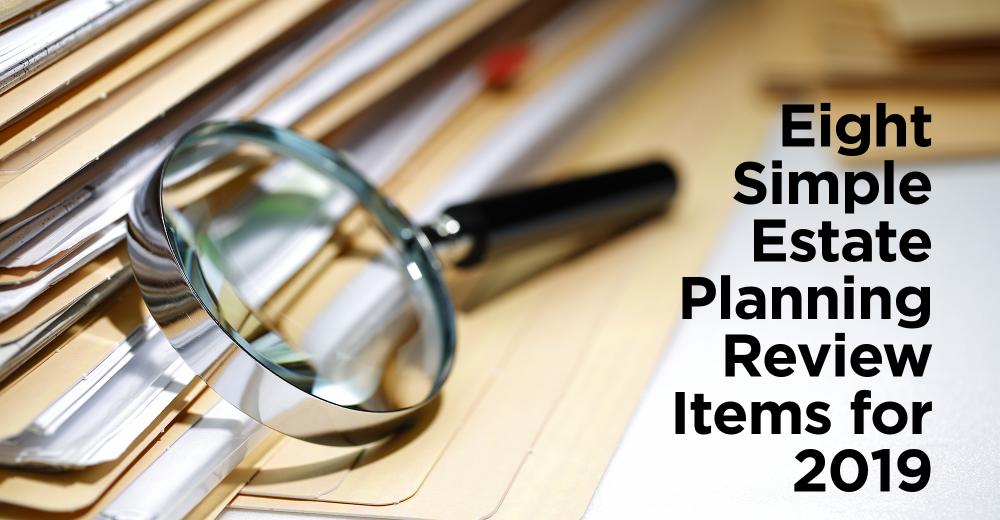1 9
1 9
A review of beneficiary designations is always prudent, especially since most designations are set when an account is opened. Rarely are they revisited unless a significant event happens. While this is a good practice, how often are tangible asset designations set? Or for that matter even reviewed. In 2019, make it a point to look at beneficiary designations for your client’s tangible assets like homes, cars and collectibles. Check legal documents to make sure tangible assets are properly accounted for.
If you haven’t noticed, we are in the digital age. Digital asset planning is a must for your clients. While clients may not believe that they have digital assets with monetary value, some have digital assets that possess sentimental value. Remember, the client may not see sentimental value in their digital assets but their beneficiaries might. Commonly overlooked items are reward points, social media photos and stories, and digital storage devices. At least inventory the digital asset so someone knows where it is.
The reason most trusts fail is because they aren’t funded. It can be inherently a pain to change titling to bank accounts, homes, cars and other tangible assets into the name of the trust. Too often trusts are established and then not funded correctly. Conversely, sometimes major items are purchased or changed and need to have their titling corrected so they correspond with a particular trust. This year take a look at your clients trusts and make sure everything that is supposed to be contained in the trust is there.
Unfortunately, this is a crazy world. When children become 18, they are adults. Maybe not in a client’s mind but certainly in the mind of the courts, hospitals and universities. Present your client with the scenario of something happening and they are unable to get information or make decisions for their babies (now adults). It’s true, if the basic documents aren’t in place it can cause a headache. In 2019, make sure your clients have documents in place for their adult children.
This may be common sense but you’d be surprised how many changes fall through the cracks. Professionals don’t typically review with their clients monthly. Sometimes it’s semiannually or even yearly. Many significant changes can occur during that time, and unless you ask clients, they may not remember to bring them up. Maybe they had a grandchild, bought a new car or bought a timeshare. Life changes constantly, stay up to date with their life changes and their estate plans.
We have all seen the pictures, watched the news and heard the stories. Everything is lost in a fire, hurricane, flood or tornado. While it’s obvious that life is not replaceable, so too are the photos and videos. Time for your clients to secure them in some type of digital storage device or cloud service. Something that cannot get wet, destroyed, burned up or just faded over time. While this may not be a service that you provide, just helping your clients manage the backup or storage processes may preserve their memories for a lifetime.
After a death, the biggest challenge is when beneficiaries go over their loved one’s possessions. This is the biggest challenge when settling an estate. Fortunately, it’s now the digital age, so electronic organization and access is the new way of preserving items. Over the slow holidays you may want to take the time to get those assets in order; Help guide them to digital storage if you aren’t providing that service. A little organization and allowing someone the knowledge on how to get information just in case something happens can make a tremendous difference.
No one ever knows when that moment will occur. Whether it be a moment of incapacitation or just treatment information, it’s imperative that not only their loved ones know but that first responders can find out immediately. Typically, when an accident occurs it’s first responders or medical personnel who are going to need access to that information. Review these documents (and medical directives) with your clients so that others can readily access that vital information.

